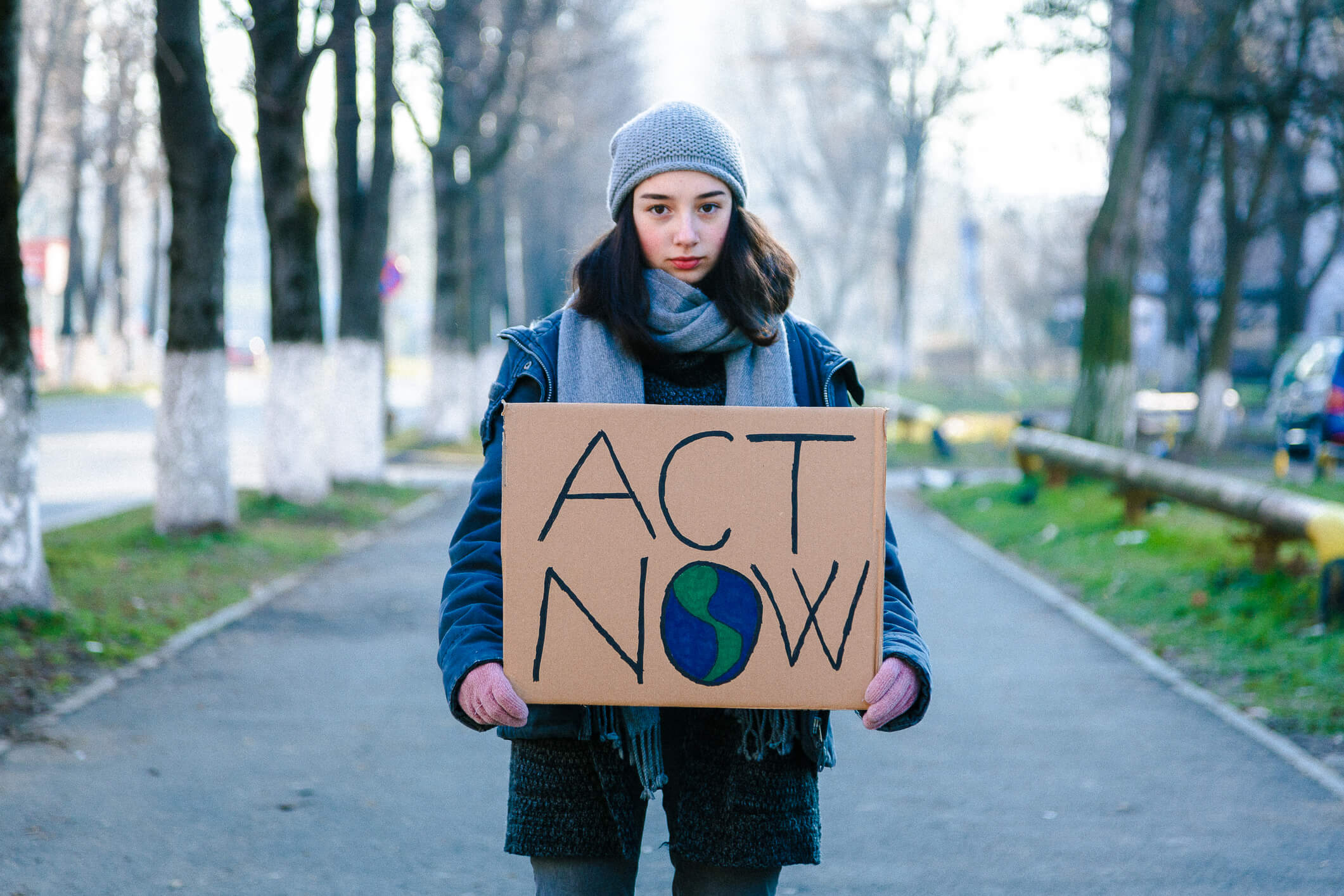New study will explore impact of climate change on teen mental health
Climate change is manifested in our daily lives. Understanding how young people are experiencing it is imperative, explains AU prof
Climate change can be a frightening topic for adults, but perhaps even more so for children and youth due to uncertainty about what their future will look like. In fact, research shows that the 9 years from 2013 to 2021 were among the warmest years on record.
However, Athabasca University (AU) assistant professor Dr. Gina Martin explained that most research about the impact of climate change focuses primarily on physical health. There’s been little study about the effects on mental health for teens aged 13 to 18—something she plans to change.
“Young people are one of the most vulnerable groups to the effects of climate change. They are projected to see a lot of change throughout their lifetime,” she said.
“We need to see how adolescents are experiencing climate change and give a voice to all people, some youth aren’t engaged in activism but still have voices and feelings about it.”
“We need to see how adolescents are experiencing climate change and give a voice to all people, some youth aren’t engaged in activism but still have voices and feelings about it.”
– Athabasca University assistant professor Dr. Gina Martin

Engaging youth across Canada
Martin is leading a research team that will study the impact of climate change on teenagers’ mental health.
To reach this group, researchers will work with youth-serving organizations and councils across Canada like the Emerging Youth Consultancy and the Human Environments Analysis Laboratory Youth Advisory Council.
Teens will then be invited to participate in focus groups to discuss their emotions about climate change, how they cope with these emotions, and to weigh in on how researchers typically ask about these topics.
“We want to start by asking the right questions,” Martin said.
Based on the focus group findings, the research team will then conduct a wider survey of Canadian teens to better understand the issue.
Climate change from an adolescent’s perspective
Martin said that teens have a lot of complex emotions about climate change; her passion for the research topic was influenced by her own children and their feelings about the world changing.
“When I think of my kids growing up, I can’t picture what the world will look like. When I was growing up, it was different for my parents. They could envision what things would be like and places would look like,” she said.
In an earlier study, Martin and her team examined existing research studies about the impact of climate change awareness on teens’ mental well-being. They found that despite recent attention in the media there is a lack of studies on the topic, so much more research is needed, especially with a greater diversity of people and places—which she plans to accomplish with this new study.
Martin is involved in several studies that examine climate change and mental health. She is a co-investigator on a study out of Simon Fraser University that is looking at how social media data can be used as a tool to understand population-level reactions to climate change in real time. She has also researched the effect of the British Columbia heat-dome on mental well-being.
“When I think of my kids growing up, I can’t picture what the world will look like. When I was growing up, it was different for my parents. They could envision what things would be like and places would look like.”

Findings could improve mental health supports
Part of this new study will look at coping methods to help further understand what strategies work for young people and when they feel overwhelmed or unable to cope with feelings related to climate change.
Martin said their findings will help youth-serving professionals in supporting teens affected by climate change.
It’s natural to not feel good about climate change, she said, but knowing that at some point you could need help and support is crucial.
“We want people to be concerned about the planet so they want to help their communities and the earth, but not at the expense of their wellbeing. We want to help people cope and also be engaged in a way that works for them.”
An interdisciplinary approach
To support this research, Martin received a Social Sciences and Humanities Research Council (SSHRC) Insight Development Grant.
Martin’s collaborators are based at Simon Fraser University, Western University, and Trinity College in Dublin, Ireland. There are also Canadian teenagers on the research team who are key partners to the project to ensure the work is done with and for Canadian teens.
Martin said they expect to start publishing their findings in 2023.